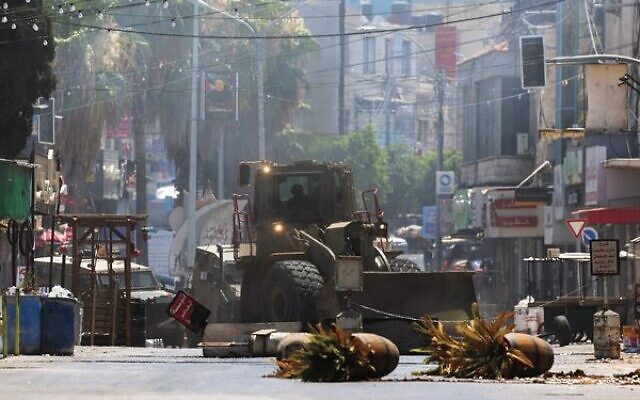Israel withdraws from Jenin after major two-day operation
The foreign ministers of Australia, Canada and the UK issued a joint statement last week expressing concern about the recent events in Israel and the West Bank.
Israeli military forces have begun to withdraw from the West Bank city of Jenin after conducting the biggest military operation in the area in over 20 years.
The major two-day ground and air incursion was launched to crack down on what Israel said is a hotbed of terror in the city.
Israeli Defence Minister Yoav Gallant said, “In the past two years [Jenin] had become a factory for terror. In the past two days, this ended.” The death toll from the operation stands at 12, while Palestinian health officials said at least 100 others were wounded. All of the Palestinians killed were involved in the fighting.
Meanwhile, the foreign ministers of Australia, Canada and the UK issued a joint statement last week expressing concern about the recent events in Israel and the West Bank, “which further reduce the prospects for peace”.
Foreign minister Penny Wong and her counterparts Melanie Joly and James Cleverly called for Israel to reverse the approval of thousands of new homes in the West Bank, saying the “continued expansion of settlements is an obstacle to peace and negatively impacts efforts to achieve a negotiated two-state solution”.
They also condemned last month’s terrorist attack in Eli targeting Israeli civilians, and the “reprehensible and ongoing settler violence targeting Palestinians”.
“We continue to support a comprehensive, just and lasting peace in the Middle East, including the creation of a Palestinian state living side by side in peace and security with Israel,” the statement said.
“This vision can only be achieved through direct negotiations between the parties.”
Zionist Federation of Australia president Jeremy Leibler said, “Whatever one’s views of the settlements, recent decades have proven that they are not the primary barrier to peace.
“Rather, the Palestinian refusal to accept Israel’s right to exist is. Statements calling out unhelpful actions should surely include the decade-long Palestinian refusal to enter peace negotiations.”
Executive Council of Australian Jewry co-CEO Peter Wertheim noted there was nothing new in the characterisation of settlements as “an obstacle to peace”.
“What is new is that the three governments have made this criticism jointly. This is for emphasis, but does not signify a change of policy,” he said.
“It is regrettable that the Australian government last month did not also join with the same countries, and 24 others, in condemning the UN Human Rights Council for its ‘long-standing disproportionate attention’ to Israel.”
Australia/Israel & Jewish Affairs Council executive director Colin Rubenstein said elements of the statement should have been better phrased “to recognise the current reality of the increasing, murderous terrorism”.
“Settlements cannot explain the fact that the Palestinian leadership appears uninterested in a peace agreement which leads to a Palestinian state alongside Israel, only one which replaces the Jewish state,” he added.
More: Page 10, Editorial: Page 17


comments